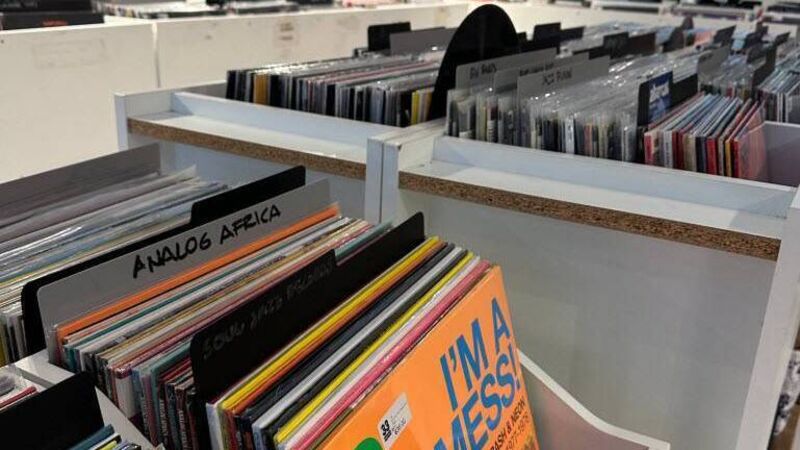Is pop still eating itself?

Many music fans are being excluded by high prices. Supporting their passion at a local level may be a more affordable pursuit.
The phrase later spawned a music group of the same name, but the debate about pop music’s self reverence continues to this day. I’ve always felt that everything goes in cycles music-wise, and I’ve written extensively on this over the years, but I’ve been thinking about possible other meanings for the phrase lately too.
Pop and music culture as a whole has been eating itself in many other ways, predominantly by pricing many people out of what should be a pretty inclusive party. I wrote last week about how the dancefloor and nightclub should be an inclusive safe space, but the music world as a whole is often excluding people by becoming a place of privilege for those who can afford it.
The price of everything is much more of a barrier to the average person these days, and it often creates a situation where many people can’t afford to go to gigs and festivals.
This is not a new debate or phenomenon by any means, and people have been arguing about the price of things for decades, but there is no doubt that things have gotten much worse lately.
My other big passion besides music is football, and the debate is raging there too. The everyday fan is being priced out of it. In England, one of the homes of football, rival fans who detest each other are putting their differences aside to unify in opposing ridiculous price hikes at matches. Man United, Liverpool, Man City and Everton fans are coming together to argue that the price of going to a game has got so high that it prices the average supporter out of it.
Your regular supporter bringing a kid or two to a game simply cannot afford it, and football has certainly betrayed its working-class roots.
The sad reality of the situation is that the average local supporter of these clubs is not seen as a priority because the clubs are huge global brands that still sell out most of their games to fans who travel from all over the world.
The average local supporter is unlikely to spend as much in the club megastore or on hospitality as the tourist, and therefore the clubs themselves are content to disregard them, who are the very heartbeat of the club.
At Turner’s Cross, I feel much happier knowing my ticket price is contributing to paying for a guy whose earnings are not in the ridiculous millions that the premier league stars are getting, but obviously I appreciate that the big stars are the ones who really sell the huge TV rights and make money for the club and the league.
Supporting local and a community level is important in music too, but again, I can see why a global superstar such as Taylor Swift or Beyonce sells more tickets here than a local act. Sadly, the average music fan often can’t even go to these big shows any more, because the ticket price is so heavy and the demand remains huge too.
This is capitalism I guess, and it excludes many. I’ve heard rugby and football supporters make the same complaints that music fans have made regarding pricing and increases, but as long as the demand remains the powers that be will continue to keep prices high. Obviously, running football clubs, stadiums, gigs and festivals, is more expensive than ever too, but as someone who has run a lot of shows in my time, I appreciate that we can’t simply give away tickets for half nothing.
The music scene is run largely by big corporations and it’s rare that the biggest shows aren’t going to be controlled by these giant companies. Without some corporate support, there’s many music artists and DJs who would not be able to survive, and ahead of the Electric Picnic this year, I wrote about how brand partnerships are one of the few ways that musicians can survive in 2024.
The community remains important and the local independent record shop or bar or cafe or venue or label remains at the heart of the music scene. This Christmas, it’s worth remembering that we all have the power to support these people too, in any small way that we can!







